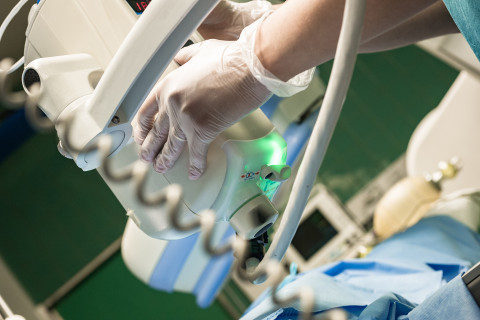The European Union has awarded a research grant of 14.8 million euros to a consortium seeking to develop novel tools for gene transfer. In addition to Academy Professor Seppo Ylä-Herttuala's research group at the University of Eastern Finland, the consortium includes the research group of Professor Juha Hartikainen at KUH Heart Centre, as well as researchers from the Universities of Edinburgh, Hannover, Kiel and Amsterdam, as well as from King’s College London and the Free University of Brussels. The consortium also includes four industrial partners, including Finvector Ltd, which operates in Kuopio. The share of funding secured by researchers in Kuopio amounts to 2.5 million euros, and the share of Finvector Ltd. to 1.6 million euros. More than 100 research consortia submitted a proposal in the 2018 call, and less than ten per cent were successful. Launching this February, the research project spans five years.
The CardioReGenix project develops novel tools for gene transfer, seeking to achieve an optimal treatment response in the cardiac muscle. The researchers use gene carriers that have been modified from viruses, transporting RNA molecules, among other things, to the cardiac muscle. RNA molecules produce naturally-occurring beneficial proteins in the patient’s body, which regulate the function of heart-repairing mechanisms. RNA molecules can also be modified to regulate several different genes, which makes it possible to influence the production of several beneficial growth factors simultaneously, rather than to use individual growth factors at a time. The project also uses novel oligonucleotide technology and nanoparticles to achieve a treatment response.
The project aims to develop next-generation gene therapy that could enable an increasingly long treatment effect in connection with, e.g., a single coronary angioplasty. Current adenovirus-based gene drugs that are presently in clinical trials offer a treatment effect of approximately two weeks. However, the new gene carriers that are now being developed could provide a treatment effect of several months after just one administration of the drug. This could have significant consequences for treatment efficacy and feasibility.
To test the gene carriers, increasingly accurate models depicting oxygen deficiency in the heart have been developed, making them well suited for testing treatments intended for humans. The cardiology research facilities hosted by the A.I. Virtanen Institute for Molecular Sciences and the Lab Animal Centre at University of Eastern Finland represent the state-of-the-art on a global scale. The university has recently purchased and introduced new angiography and tomography equipment, thanks to a donation by Finvector Ltd. Close collaboration with KUH Heart Centre plays a key role in the project in order for new treatments to become applicable in clinical settings as easily as possible.
A special characteristic of the project is that it features significant funding for researcher mobility, allowing researchers from Kuopio to make longer visits to other laboratories involved in research consortium, as well as the use of state-of-the-art analysis methods in shared research projects addressing cardiovascular diseases.
For further information, please contact:
Academy Professor Seppo Ylä-Herttuala, tel. +358403552075
